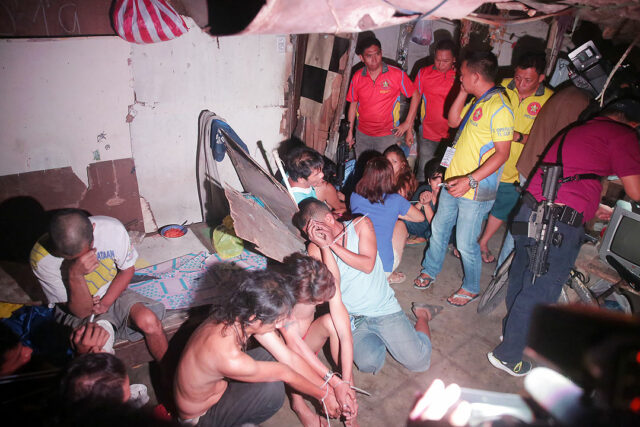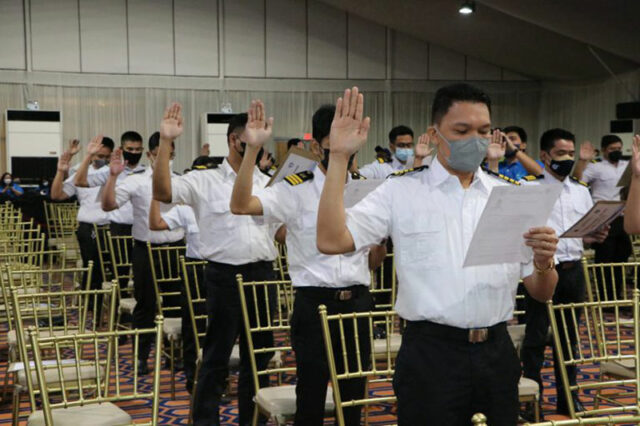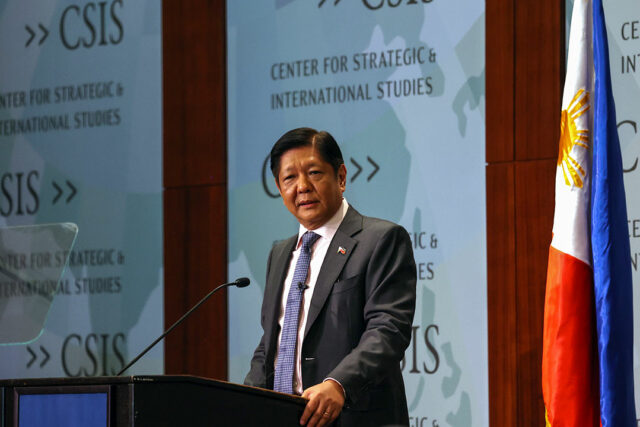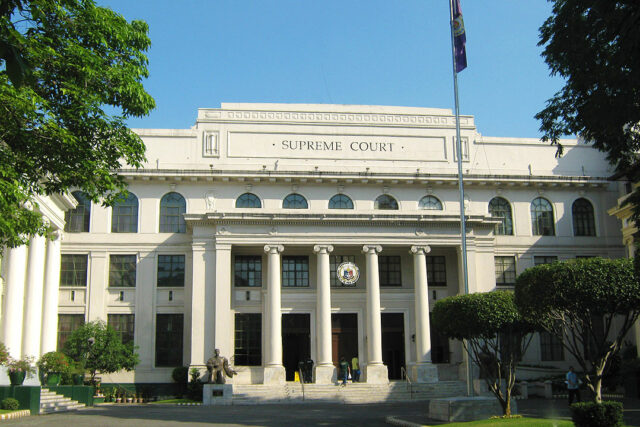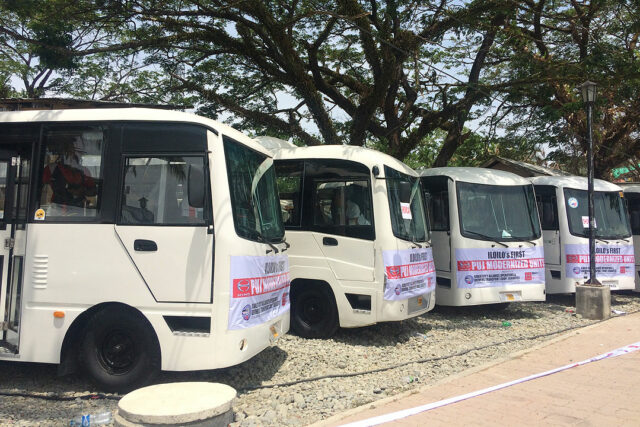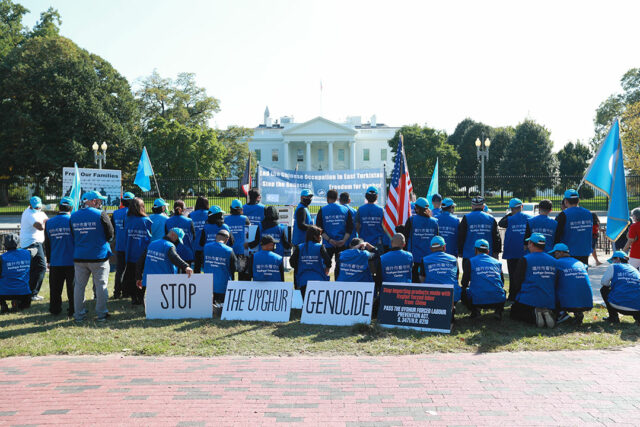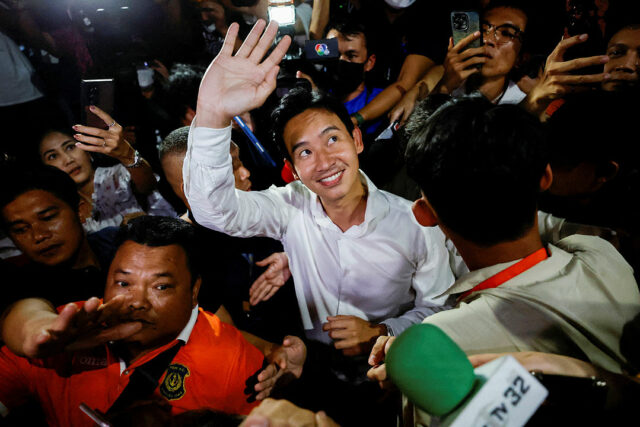Manila won’t deal with ICC anymore after decision to continue drug probe
THE PHILIPPINES would no longer engage with the International Criminal Court (ICC), the solicitor general said on Thursday, days after it rejected a plea to suspend its investigation of the government’s deadly war on drugs.
The decision was approved by President Ferdinand R. Marcos, Jr., Solicitor General Menardo I. Guevarra told reporters.
“I have discussed this matter personally with President Bongbong Marcos and we have agreed that our appeal to the ICC appeals chamber is the end of our engagement with the ICC,” he said. “We just really waited for the decision that we nearly won, 3-2.”
The ICC on Tuesday rejected a Philippines appeal to suspend its probe of ex-President Rodrigo R. Duterte’s war on drugs, paving the way for its prosecutor to later indict and order the arrest of local officials who aided the campaign.
In a court session in the Hague streamed live on the ICC website, Appeals Chamber Presiding Judge Marc Perrin de Brichambaut read the decision that said the pre-trial chamber was right in allowing ICC Prosecutor Karim Ahmad A. Khan to resume his probe of the drug war that had killed thousands.
Magistrates voted 3-2 in favor of the investigation, he added.
In March, the United Nations-backed court based in the Hague denied the government’s request to stop the ICC Pre-Trial chamber from reopening its investigation of Mr. Duterte’s anti-illegal drug campaign.
The ICC said its investigation should not prevent the state from continuing its own probe of rogue cops in its deadly drug war.
Mr. Guevarra told reporters in a Viber message on Sunday officials who get indicted would have to hire their own lawyers, noting that his office would only represent the state at the hearings.
He said the Philippines would assert its sovereignty and focus on its own investigation and prosecution of alleged abuses related to the anti-illegal drug campaign.
Last year, Mr. Marcos Jr. said the Philippines would not rejoin the ICC, which political experts said is meant to protect his predecessor from prosecution.
Mr. Duterte canceled the country’s ICC membership in 2018.
The ICC Pre-Trial Chamber in January reopened its probe of Mr. Duterte’s campaign against illegal drugs, saying it was not satisfied with government efforts to probe human rights abuses.
It was also set to probe vigilante-style killings in Davao City when the former president was still its vice mayor and mayor.
Mr. Marcos should support accountability for grave crimes in the Philippines and uphold the country’s obligation under the ICC’s founding Rome Statute to cooperate with the court, Human Rights Watch said after the decision.
“The ICC Appeals Chamber decision rejects Philippine government claims that the ICC should not investigate in the country,” Bryony Lau, deputy Asia director at Human Rights Watch, said in a statement. “President Marcos should back up his stated commitment to human rights by cooperating with the ICC prosecutor’s inquiry.”
‘BEFUDDLED’
Human Rights group Karapatan said it was crucial for international bodies such as the ICC to seek accountability since the local justice system is ineffective.
“It is high time that the ICC investigation proceeds without a hitch so that the victims of Duterte’s bloody anti-drug war can finally tread the road towards justice and accountability,” it said in a statement.
On Feb. 16, Mr. Khan told the ICC the Philippines had not raised new arguments to justify halting the probe, adding that the Duterte government had condoned crimes committed during the drug war.
Mr. Guevarra, who was Mr. Duterte’s Justice secretary, earlier said the country is not legally and morally bound to cooperate with the ICC.
The government estimates that at least 6,117 suspected drug dealers were killed in police operations. Human rights groups say as many as 30,000 suspects died.
Senator Ramon “Bong” Revilla, Jr. defended Mr. Duterte and fellow Senator Ronald “Bato” M. dela Rosa, who enforced the anti-illegal drug campaign when he was still the national police chief, saying Filipinos credit it for restoring peace and order.
“We won’t allow what is clearly meddling by the ICC with our nation’s affairs,” he said in a statement in Filipino. “We do not need to remind them that we are a free, independent and sovereign nation governed by our laws.”
The lawmaker said he was “befuddled by the ICC’s pursuit of this obvious baseless persecution while legitimate concerns and crimes against humanity are being perpetrated in other parts of the world as speak.”
Senate President Juan Miguel “Migz” F. Zubiri said the chamber would extend protection over members and would not surrender its integrity and independence “especially to foreign interests.”
Ephraim B. Cortez, president of the National Union of Peoples’ Lawyers said that the ICC is not overstepping their boundaries, adding that certain Philippine officials were not being singled out.
“It is also obvious that there was no honest-to-goodness investigation of the killings, and Bato and Duterte have never been investigated, warranting the exercise by the ICC of jurisdiction,” he said in a Facebook Messenger chat.
Mr. Cortez also noted that Mr. Revilla was among the senators who voted to ratify the ICC charter in 2011. “He and the other senators who voted with him should know that a sitting or former president, or any official of the Philippine government could be prosecuted before it.”
Anna Rosario Malindog-Uy, a political analyst at Philippine BRICS Strategic Studies, said Filipinos would never allow the ICC to meddle in Philippine affairs.
“The fight against illegal drugs during the time of [President Duterte] should never be considered a crime against humanity because it is considered a legitimate police action,” she said in a Viber message. — Norman P. Aquino and Jan Jiminel Cacdac

